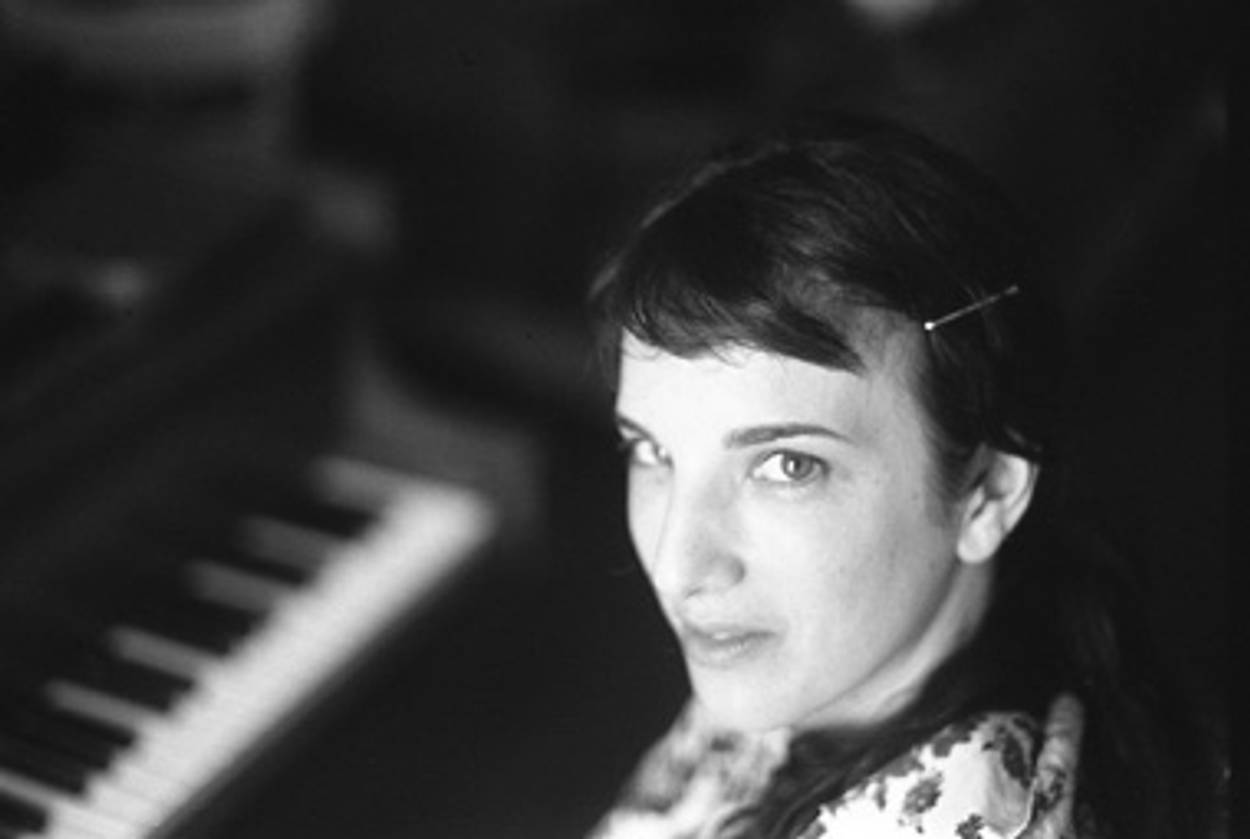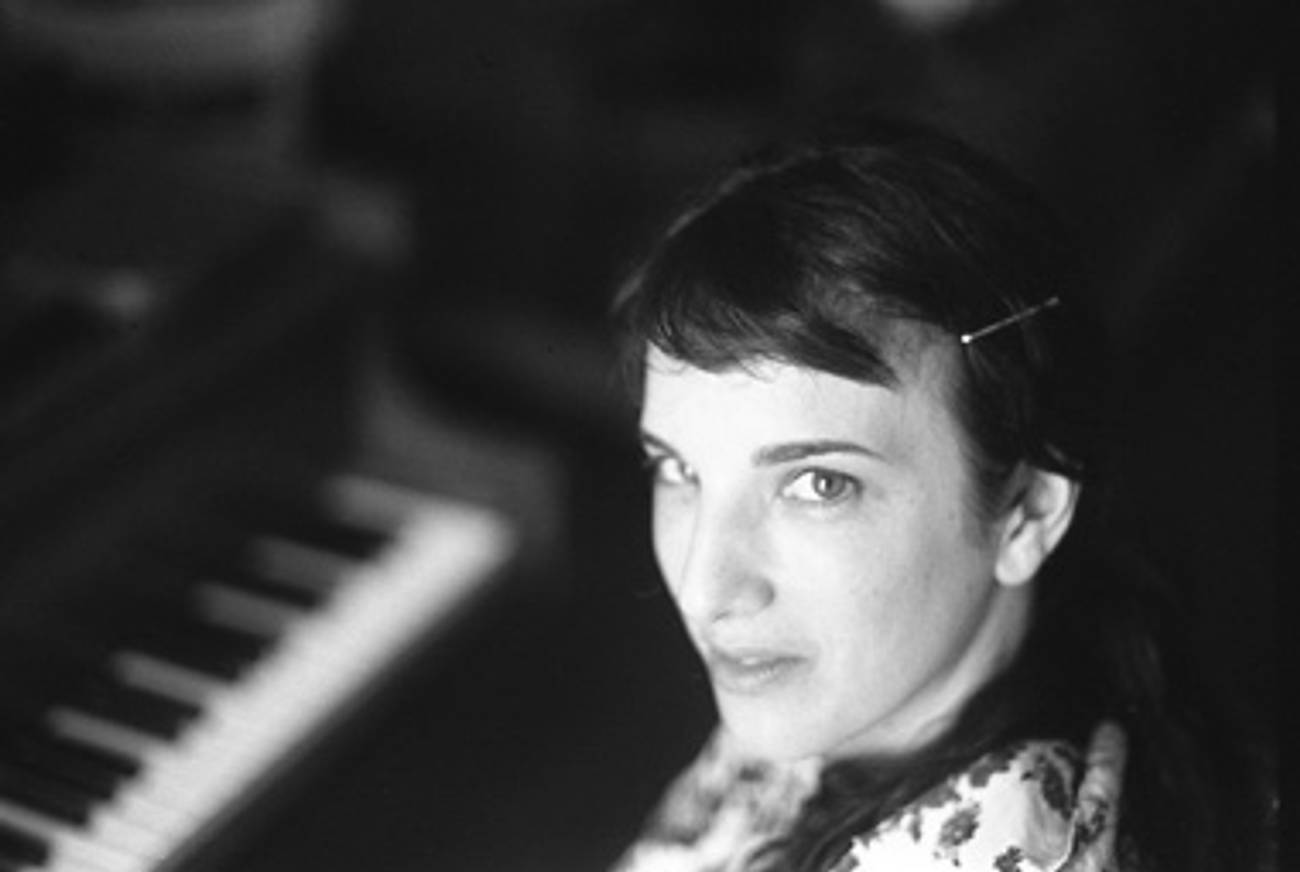Viennese Blend
A century and a half ago, Austrian cantor Salomon Sulzer redrew the boundaries between liturgical and classical music. In a chamber opera about his life, composer Judith Berkson follows suit.




Depending on your point of reference, the term “Storm and Stress” may bring to mind an experimental rock band, a German aesthetic movement, or the mental state of the average teenager. But now, future Google searches will turn up another, even more unexpected item: opera.
Judith Berkson, a 32-year-old, Brooklyn-based singer, composer, and cantor, is using the phrase as the working title for a chamber opera about the 19th-century Viennese cantor Salomon Sulzer, who reformed Jewish liturgical music, performed with Liszt, and was a friend of Schubert’s. According to her project statement, which won her a two-year Six Points Fellowship, the work will draw on “Renaissance motets, Viennese opera, cantorial music, ambient sound, and rock.”
Sulzer, who tested and redefined the boundaries between the Jewish liturgical tradition and Western European art music, holds a special fascination for Berkson. Growing up in Chicago, she was trained in liturgical music by her father, himself a cantor. She didn’t tell anyone about the “family business” when she enrolled, at the age of 18, in the New England Conservatory, where she was determined not to be pigeonholed as a Jewish performer.
Instead, she ended up studying microtonal music under composer Joe Maneri and took classes in jazz and klezmer. “They had a difficult time figuring me out,” said Berkson during a recent interview in the basement of her Brooklyn brownstone. “They wanted me to go down the classical path, and I would turn up in class and play the accordion or something. I didn’t broadcast my work as a cantor because I really didn’t think it was that big of a deal. For me, that music lived in the synagogue where it had meaning and purpose. It didn’t make sense to perform it outside.”
But five years ago—by which point she had settled in New York City and was exploring its alternative music scene—Berkson began to allow her musical worlds to mesh. One reason for the shift, she said, is that the music she heard in the synagogues she attended was changing; traditional melodies were giving way to entirely new arrangements.
And, “partially to amuse myself and my dad but also to use in services,” she said, she had started to write her own cantorial pieces. “I would play them for friends, and I began to see that people, especially my age or younger, had no context for it and little opportunity to hear it. That level of non-exposure was shocking to me. I started singing some of my cantorial pieces at shows, and the response was positive—which also shocked me, but in a good way.”
Today, her music encompasses all her passions and influences—with often startling results. On her second solo album, Oylam, released last year on ECM, Schubert Lieder and Yiddish folk songs, Cole Porter standards, and microtonal improvisations sit side by side like strangers pulled in off the street at random. Upon repeated listening, however, the effect becomes that of a party at which different sets of friends, long kept separate, begin to converse for the first time.
Elements of one style of music manage to sneak into songs from another: A dirty note in a jazz standard becomes an exercise in microtonal singing; the piano part to Schubert’s “Leiermann” reveals its oriental modal roots. “Clives,” one of Berkson’s original compositions, is a dreamy, tongue-in-cheek, reflection on what a meeting of Charles Ives and Claude Debussy might have sounded like.
Schubert continues to be a constant companion. “I love to sing [his songs] ‘straight’ and I work on that just about every day,” she says. “That’s the foundation.” Less “straight” is her arrangement for string quartet, voice, and Wurlitzer organ of his setting of Psalm 92, which she has performed with the Kronos Quartet.
Schubert wrote that psalm setting at the request of Sulzer, who was compiling a collection of liturgical pieces for soloists and choir to use in the synagogue. Schubert died four months later, but Sulzer, who was admired for his warm baritone, would continue to perform his Lieder in concert settings, on one occasion accompanied by Liszt at the piano.
Not everyone in the Viennese Jewish community was impressed by such cultural balancing acts. For Berkson, that tension is what gives an opera about Sulzer dramatic potential. But asked whether Schubert himself will be a character in the opera, she laughs.
“I don’t know yet,” she says. “That could be tricky. That could be kind of comical.”
Corinna da Fonseca-Wollheim is an arts journalist in New York City. Her articles on music have appeared in the Wall Street Journal, the New York Sun, the Jerusalem Post, the Classical Review, and other publications.
Der Leiermann:
[audio:https://www.tabletmag.com/audio/berkson/der-leiermann.mp3]
Ahavas Oylam:
[audio:https://www.tabletmag.com/audio/berkson/oylam.mp3]
Corinna da Fonseca-Wollheim is a music critic and writer living in Westchester.